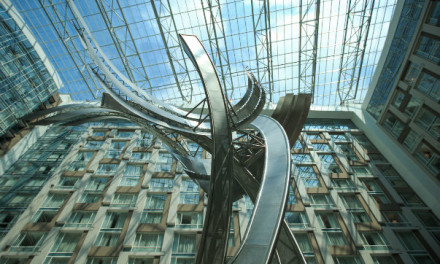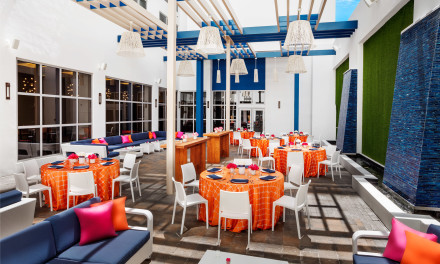Apparently, enough is enough for American Airlines. Last week, AA filed a lawsuit in Texas over a long running postcard scam (see photos below) that uses AA’s likeness by name, logo and photo. AA encourages consumers affected by the scam to scan the back and front of the mailers and email them, along with their full name, address and phone number, to the company to webmaster@aa.com to be used as evidence in the case.
See a recent post by @AAdvantageGeek on the same AA postcard scam his brother and reader received: This Postcard is Not from American Airlines. The example there shows a clear AA livery stock photo used on the mailing.
AA’s October 3, 2013 News Release reads:
American Airlines today filed a lawsuit in Tarrant County, Texas, District Court against several individuals and entities operating a nationwide scam that uses American’s trademarks and likeness of its livery on mass-mailed postcards and letters to lure people into sales presentations for vacation club memberships. The lawsuit seeks to stop these individuals and entities from illegally misappropriating American’s well-known and valuable trademarks, liveries and logos.
American’s lawsuit alleges that the mailers created and used by defendants are intentionally and deceptively designed to appear that American is involved in the promotion. Some mailers refer to a promotion called “American Airlines Fly Away Promotion,” while other mailers feature American’s brand images or name.
The deceptive mailers promise the recipient two free round-trip airfares. When the recipient calls the phone number listed on the mailer, they are told they must attend a seminar to receive the airline tickets. The purpose of the seminar is to sell vacation club memberships, which are high priced and offer little more than discounts readily available online. The promised airline tickets are either not distributed at all or are very difficult to redeem because of the many fees and restrictions they carry.
“The well-being of American’s customers is our top priority, and this is such an unfortunate violation of an iconic brand that our customers, employees and communities around the globe have come to trust,” said Rob Friedman, American’s Vice President of Marketing. “This lawsuit seeks to protect the brand so many rely upon, and cease these deceptive practices.”
In an attempt to track the ongoing activities of the defendants, American encourages consumers affected by the scam to scan the back and front of the mailers and email them, along with their full name, address and phone number, to the company at webmaster@aa.com to be used as evidence in the case.
But this scam is nothing new. It’s been around for years and apparently involved other airlines such as Delta and Southwest.
A very similar scam (which I have personally received in the mail) is the fake “US Airlines” prize letter that tries to hook you in with the same temptation of “you have qualified for an award of 2 round trip airline tickets.” Watch how one recipient dealt with it:
The HOOK
- Company sends consumer deceptive postcard with the American Airlines or another well-known airline’s logo telling them they won two free tickets!
- Consumer contacts the number on the postcard and answers “qualifying” questions such as “Are you single or married?”
- “If” consumer “qualifies” consumer is invited to attend a presentation in exchange for the airline tickets.
- Cue high-pressure sales tactics to purchase a “travel club membership” or similar product.
While the purpose of the hook is to get you caught in the phishing net of a sales presentation, other similar scams may have the sole purpose of gaining your personal and financial information for further crimes.
The TAKEAWAY
If it seems too good to be true, it probably is.
- If you are asked to make a purchase in order to claim your prize — STOP!
- You should not have to purchase anything or pay money to claim what you have “won.”
- If you are asked to wire money, or even accept a money wire or money order — STOP!
- Scammers may instruct you to wire money to cover the “processing fees” or “taxes” or other “administrative costs” to complete the processing of your prize. Even if you think you’ve received money and are only now paying out a portion of the money you received, wrong. Once you have sent a money wire, it is difficult to get it back within a short time and likely impossible after that.
- If you are asked for personal information — STOP!
- Many scams request your personal information, including credit card data, account names and passwords.If your prize relies on corporation or government looking names / logos — STOP! Scammers may use well-known company or government agencies names and logos to raise your confidence in the validity of the prize. Don’t proceed without calling that entity first to confirm its authenticity.
- If you notice typos or poor grammar — STOP!
- Scams and phishing emails often contain typos and poor grammar, mistakes a reputable company will (most often) be lacking.
- If your “major award” came via a bulk email or was mailed to you by bulk rate postage — STOP!
- Such a notification is going to likely come to you through a much more personal channel of communication if you are the winner of a big prize.
See the American Airlines Fraudulent Communications page for more information on how to recognize and respond to scams.
What other tips do you have?
Have you experienced such scams?
____
@travelblawg
facebook.com/travelblawg
Subscribe in the sidebar!
![]()
Disclosure of Material Connection: Some of the links in the post above are “affiliate links.” This means if you click on the link and purchase the item, I will receive an affiliate commission.






